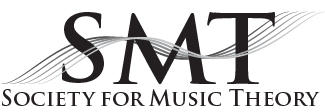Editor’s Message
[1] As we announce the publication of MTO volume 10.3, I want to take the opportunity to thank Richard Plotkin, Eric Isaacson, Brent Yorgason, and other individuals who have continued to help behind the scenes as we establish MTO content and services on the new SMT server. On a related note, I am happy to announce that MTO has been invited to participate in the LOCKSS archival project. Once fully implemented, the ongoing participation of LOCKSS institutions worldwide will insure that continually updated caches of MTO are always available to readers, so that no server interruption can disrupt access to MTO.
[2] In this issue we offer three articles, a commentary exchange on a recent MTO article, and two book reviews. Articles in this volume include:
“Sublimating Sharp ^4: An Exercise in Schenkerian Energetics” by Frank Samarotto
“An Algorithm for the Direct Generation of Set Class Representatives in Any Pitch Class Space” by Nick Collins
“Continuous Transformations” by Clifton Callender
[3] Roger Wibberley contributes a Commentary on Bret Aarden and Paul von Hippel’s article, “Rules for Chord Doubling (and Spacing): Which Ones Do We Need?” published in MTO issue 10.2. Bret Aarden and Paul von Hippel provide their response to Wibberley.
[4] Damian Espinosa reviews Annette Richards’ The Free Fantasia and the Musical Picturesque (Cambridge: Cambridge University Press, 2001). Edward D. Latham contributes “Binary Oppositions in Arnold Whittall's Exploring Twentieth-Century Music: Tradition and Innovation (Cambridge University Press, 2003) and Their Implications for Analysis.
[5] Also provided in the issue are listings of recently completed dissertations,
job opportunities, and general announcements.
[6] Submissions to MTO are welcome at any time. We encourage readers
to post their reactions to this issue's articles and review. The mto-talk email
list is available to MTO subscribers (subscription is free) for online
discussion of any MTO-related topic. To post to mto-talk, simply send
an email message to mto-talk@societymusictheory.org.
Longer responses may be submitted to the Editor for publication in the Commentary
section of the next issue.
[7] All MTO volumes dating back to our first issue in 1993 can be accessed from the contents page at http://www.mtosmt.org/issues/issues.html.
![]()
|
Timothy Koozin, Editor Updated
03 July 2013 |
